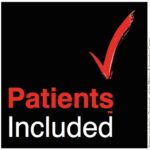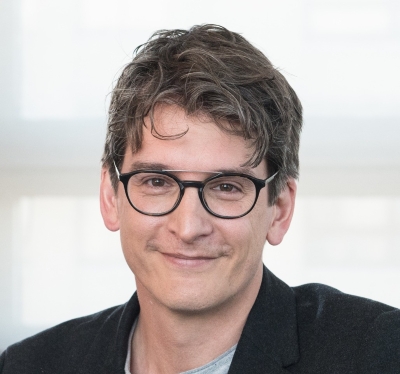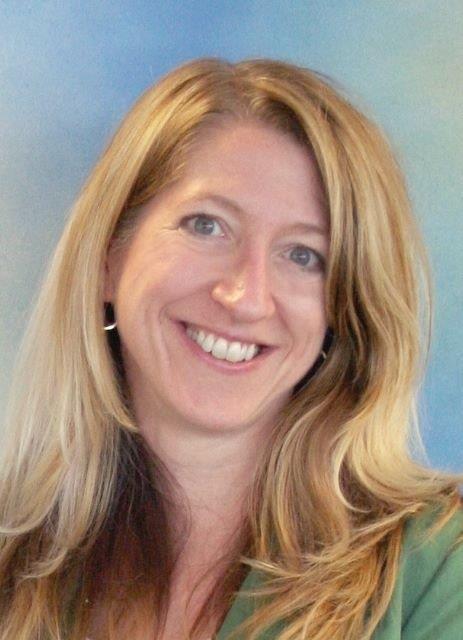PROGRAM HIGHLIGHTS: Putting Patients First 2026
Tuesday March 3, 2026
Join us in-person in Vancouver, BC, or virtually
No cost to attend
Spots are limited. We invite you to register as soon as possible to secure your spot at the event.
Vancouver Marriott Pinnacle Downtown Hotel
1128 W Hastings St, Vancouver, BC
Program highlights
This program is in-progress and updated on an ongoing basis.
Morning sessions
- Opening prayer
Elder Roberta Price
- Welcome and opening remarks
- Opening keynote: Dr. Antoine Boivin, MD, PhD
Primary care physician
Co-director of the Canada Research Chair in Partnership with Patients and Communities
- Impact of SPOR in BC
Hear from teams who have received funding from the BC SUPPORT Unit. You’ll join a series of four presentations and learn how engaging people with lived experience has shaped health research and care across the province.
Topics include learning health systems, data, capacity development, patient engagement, Indigenous health research, sex and gender-based analysis plus (SGBA+), and equity, diversity and inclusion (EDI).
Speakers include:
| Dr. Kendall Ho, MD, FRCPC Emergency Medical Specialist, Vancouver Coastal Health Professor, Department of Emergency Medicine TEC4Home: Telehealth for emergency-community continuity of care connectivity via home telemonitoring |
Dr. Phalgun Joshi, PhD Director of Operations, Legacy for Airway Health, Vancouver Coastal Health Legacy for Airway Health and the community partner committee |
| Dr. Leah Lambert, RN, PhD Executive Director and Senior Scientist, Nursing and Allied Health Research and Knowledge Translation department, BC Cancer Clinical Assistant Professor, UBC School of Nursing Developing an equity-oriented model of cancer care |
Dr. Jude Kornelsen, PhD Associate Professor, Department of Family Practice, UBC Co-Director, Centre for Rural Health Research Research participation through a rural lens |
| Dr. Dan Goldowitz Investigator, BC Children’s Hospital Senior scientist, UBC’s Centre for Molecular Medicine and Therapeutics Professor Emeritus, University of British Columbia Patient experience library |
Dr. Davina Banner Interim Associate Vice-President, Research Operations, University of Northern British Columbia Cardiovascular and rural health |
-
Networking lunch
Afternoon sessions
-
Visioning workshop
At registration, we asked you: “In your experience, what is the biggest problem facing our healthcare system in BC?” In this session, you’ll brainstorm with your fellow attendees on how learning communities can tackle some of the priorities you identified.
-
Closing keynote: Sarah Greene, MPH
Cancer research advocate & person with lived experience
Senior Advisor, Research Advocate, and Consultant
-
Closing remarks
-
Closing prayer
Elder Roberta Price
Please note
- This program is in-progress and updated on an ongoing basis.
- Movement and networking breaks will take place throughout the day.
- A wellness room will be available throughout the day.
What is Putting Patients First?
Putting Patients First (PPF) is an annual conference hosted by the BC SUPPORT Unit, part of Michael Smith Health Research BC.
PPF 2026 will continue the conversation on learning communities in BC. Together, we’ll explore how bringing diverse groups of people together to solve a shared health problem — including people with lived and living experience — can improve health and health research ecosystems.
This event is being organized and developed with Patients Included™ principles. Visit our FAQs to learn more about Patients Included™.

What are learning communities?
Learning communities are groups of people with shared interests and goals, multiple perspectives, experiences, and expertise that meaningfully collaborate to solve health and health system problems.
Latest updates
- Program highlights available: Highlights from the day are now available. View updates.
- Registration open: Join us in-person or online on March 3, 2026. Register now.
- FAQ now available: Find out answers to frequently asked questions. View FAQ.
This webpage is updated on an ongoing basis.
At the conference, we aim to:
- Show how the Strategy for Patient-Oriented Research (SPOR) has made a real difference in BC’s health and health research ecosystems.
- Highlight the power of connection across BC’s health and research communities in driving solutions.
- Celebrate the conference’s legacy as a vital gathering place that brings people together across the province.

Keynote speaker: Dr. Antoine Boivin, MD, PhD
Antoine is a primary care physician and the co-director of the Canada Research Chair in Partnership with Patients and Communities. He dedicates his life to fostering relationships between people, communities and health systems.
For the past two decades, Antoine’s clinical practice, research, and teaching are conducted in partnership with people and communities. His research and clinical team include people facing chronic and mental health challenges, people with lived experience of homelessness, Indigenous navigators, migrants, youths and elders.
In recent years, Antoine has facilitated local and international collaboration on social participation in health, in cooperation with the World Health Organization and partners from Europe, Asia, Africa, and Latin America.
Antoine is passionate about how music, storytelling and nature can strengthen our communities, nurture caring relationships within and around ourselves, and help us learn from our differences.

Keynote speaker: Sarah Greene, MPH
Sarah is a cancer research advocate and freelance consultant. She has worked in the health and health care space for more than 30 years, conducting research on cancer care delivery, clinician-patient communication, and health system improvement. Her work experience helped her navigate a Stage 3 endometrial cancer diagnosis and successful treatment at Swedish Cancer Institute, which then led her to advocacy. She participates on national advocacy efforts including the National Cancer Policy Forum and ASCO’s Health Services Research Committee.
An accomplished writer and speaker with nearly 200 publications and presentations, she has shared her work at the National Academy of Medicine, Foundation for Women’s Cancer, Mayo Clinic, and numerous other organizations. She received her bachelor’s and Master’s degrees from Indiana University Bloomington and lives in Seattle.
Most recently, she is a Senior Advisor, Research Advocate, and Consultant with recent engagements supporting the National Academy of Medicine, the Patient-Centered Outcomes Research Institute (PCORI), the National Cancer Institute, and Kaiser Permanente.
Frequently asked questions (FAQ)
Who can attend Putting Patients First 2026?
Putting Patients First is for everyone interested in improving health care or the health system.
This includes:
- Physicians, allied healthcare professionals, and health system staff
- Patients, caregivers, people with lived or living experience, and communities
- Researchers and trainees
- Health system leaders, decision-makers and policymakers
Are there opportunities to submit an abstract or present my work?
For Putting Patients First 2026, we are not accepting abstracts for presentations or posters. If you are still interested in attending as a participant, we encourage you to register.
What is a Patients Included™ conference? How is Putting Patients First 2026 a Patients Included™ event?
Patient Included™ was an initiative started by patient Lucien Engelen. It aims to ensure patient experiences and insights are meaningfully included into organizational work, including events.
For a conference to be Patients Included™, it must meet the five criteria below in a self-assessment. Putting Patients First 2026 meets these following criteria:
| Patients Included™ criteria | How Putting Patients First 2026 meets the criteria |
| Patients or caregivers with experience relevant to the conference’s central theme actively participate in the design and planning of the event, including the selection of themes, topics and speakers | Patient partners are actively involved in the design and planning event, through advisory committees and working groups. Their lived experience shapes the event rollout, including the day’s events and activities. |
| Patients or caregivers with experience of the issues addressed by the event participate in its delivery, and appear in its physical audience | Patients and people with lived experience will be part of the event program and will also join as audience members. |
| Travel and accommodation expenses for patients or carers participating in the advertised programme are paid in full, in advance. Scholarships are provided by the conference organisers to allow patients or carers affected by the relevant issues to attend as delegates | Patient partners who are part of the Patient Partner Network with the BC SUPPORT Unit, or who are involved in presenting at or planning Putting Patients First 2026, will receive travel and accommodations in advance of the event, as delegates to the event. |
| The disability requirements of participants are accommodated. All applicable sessions, breakouts, ancillary meetings, and other programme elements are open to patient delegates | All sessions and parts of the event program are open to patients and the public. When a participant registers for the event, they can also share their accommodation needs with the event planning team, whether in the physical or virtual space.
We’re very excited to work with a diverse advisory council throughout every stage of the event, from planning to execution, to ensure that equity, diversity, and inclusion, as well as Indigenous cultural safety, are centered and that the event reflects the needs and requirements of people with lived and living experience. We’re grateful for their expertise. |
| Access for virtual participants is facilitated, with free streaming video provided online wherever possible | Conference sessions will be streamed online, free of charge. Virtual attendees will be able to ask questions and participate in sessions. |
To learn more, visit the Patients Included™ website.
Do you offer travel bursaries to attend the event?
At this time, we are only able to cover travel and accommodations for patient partners who are part of the Patient Partner Network with the BC SUPPORT Unit, or who are actively involved in presenting at or planning Putting Patients First 2026, as delegates to the event. Currently, those positions are filled and there are no travel bursaries offered to other patient partners at this time.
If you are interested in travel support, there may be community or research organizations in your area that offer bursaries. You can also register to attend the event virtually.
Will the sessions be recorded?
Photography, audio or video recording will take place in all designated conference spaces. Some conference sessions will be recorded and made available following the event. Read the AV notice.
More details will be available closer to the event date.
How can I attend the event? Will it be in-person or virtual?
The event will take place in-person in Vancouver, BC, and virtually.
Vancouver Marriott Pinnacle Downtown Hotel
1128 W Hastings St, Vancouver, BC
https://www.marriott.com/en-us/hotels/yvrdt-vancouver-marriott-pinnacle-downtown-hotel/overview/
Is this a fragrance-free event?
Yes. Please refrain from wearing cologne, perfume or other scented products.
Is the conference free to attend?
Yes. There is no charge to attend, in-person or virtually.
Where can I learn about previous years of Putting Patients First?
Who do I contact if I have questions?
Please email us at ppf@healthresearchbc.ca.
Contact us
-
Questions?
no position
ppf@healthresearchbc.ca
no phone

